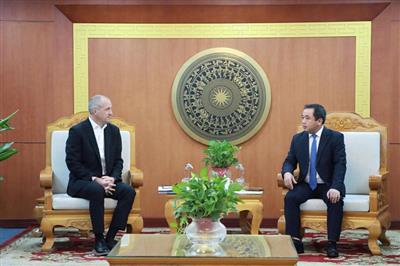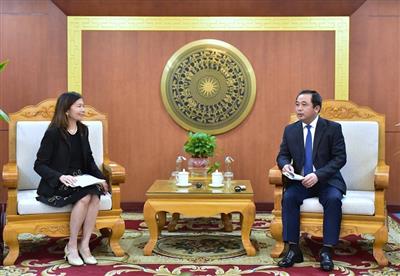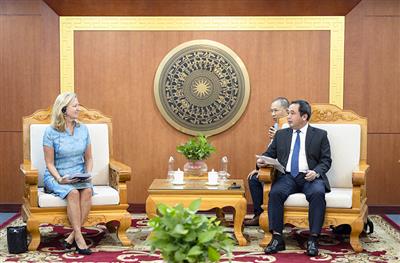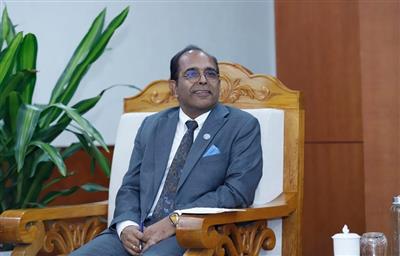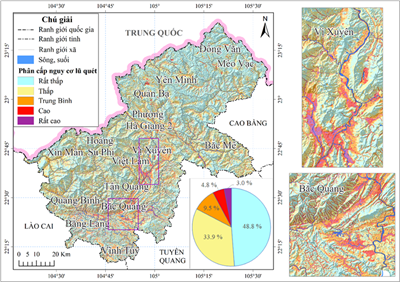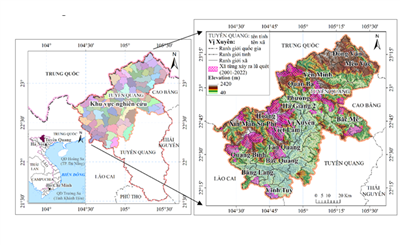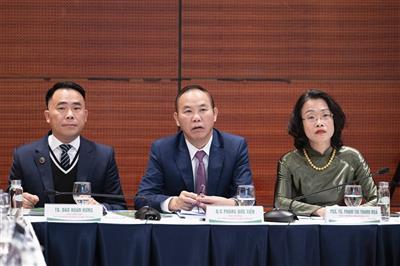
Biodiversity conservation: The foundation for sustainable development and a green future
22/05/2025TN&MTOn May 22, 2025, at Cuc Phuong national park in Ninh Binh province, the Ministry of Agriculture and Environment, in collaboration with UNDP, GIZ, and the People’s Committee of Ninh Binh province, solemnly organized the celebration of International Biodiversity Day under the theme “Living in harmony with nature and sustainable development.” This event not only honored the essential role of nature in human life but also reaffirmed Vietnam’s strong commitment to implementing the Kunming-Montreal Global Biodiversity Framework, aiming to restore and protect ecosystems for a peaceful and prosperous future.
Vietnam among the world’s top 16 biodiverse countries
Speaking at the celebration, Deputy Minister Nguyen Quoc Tri emphasized that nature and biodiversity form the foundation of all life and are prerequisites for the sustainable development of humanity and the planet. Amid the rapid global decline in biological resources, he stressed that conservation is not only a moral obligation but also a survival strategy to secure the future for coming generations.
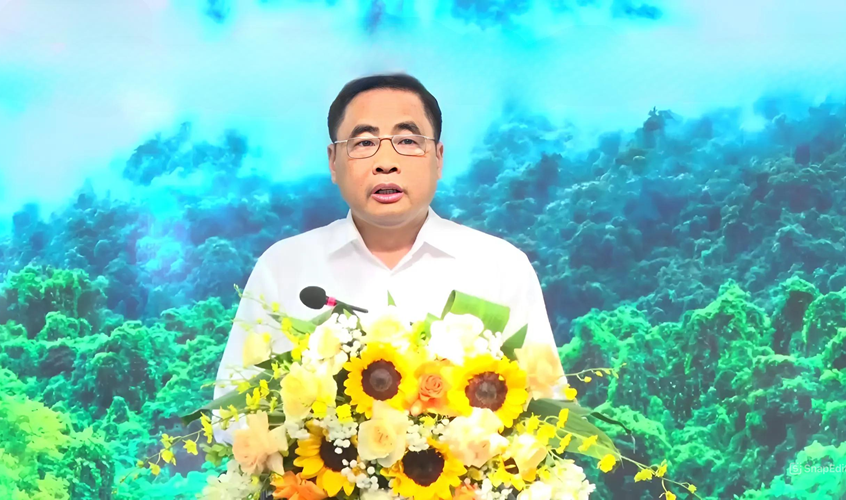
Deputy Minister Nguyen Quoc Tri candidly pointed out escalating challenges including climate change, environmental pollution, invasive species, and economic development pressures
Vietnam ranks 16th globally in terms of biodiversity richness. Its forests, wetlands, coral reefs, limestone mountains, and many rare species hold significant domestic and international value. Recognizing this, the Party and State have implemented numerous proactive policies to develop a nationwide system of protected areas, currently numbering 178 nature reserves, many of which have earned international recognition such as Ramsar sites, biosphere reserves, and ASEAN heritage parks.
However, Deputy Minister Nguyen Quoc Tri candidly pointed out escalating challenges including climate change, environmental pollution, invasive species, and economic development pressures. He warned that biological losses are irreversible without timely action. He called for the unified effort of the entire society—from government agencies and businesses to each individual—to safeguard nature as a precious common asset.
Mr. Patrick Haverman, Deputy Resident Representative of UNDP in Vietnam, also expressed concern over the fact that more than one-third of mammal species in the country are facing the risk of extinction. He emphasized that the loss of biodiversity poses a serious threat to the economy, food security, and public health. Therefore, biodiversity conservation must become an integral part of national and sectoral development planning, including infrastructure and energy development.
Ninh Binh: Linking economic development with nature conservation
As the host of this important event, Ninh Binh province has demonstrated a strong determination to conserve biodiversity. The province actively fulfills international commitments and complies with national laws on nature protection while integrating conservation goals into socio-economic development planning. Notable efforts include implementing the Sustainable Development Program – Agenda 21, the provincial development plan for 2021–2030, and specific directives and plans on wildlife protection.
Vice Chairman of Ninh Binh People’s Committee Nguyen Cao Son affirmed that with its abundant and diverse natural resources, the province identifies environmental protection and biodiversity conservation as fundamental conditions for promoting key economic sectors.
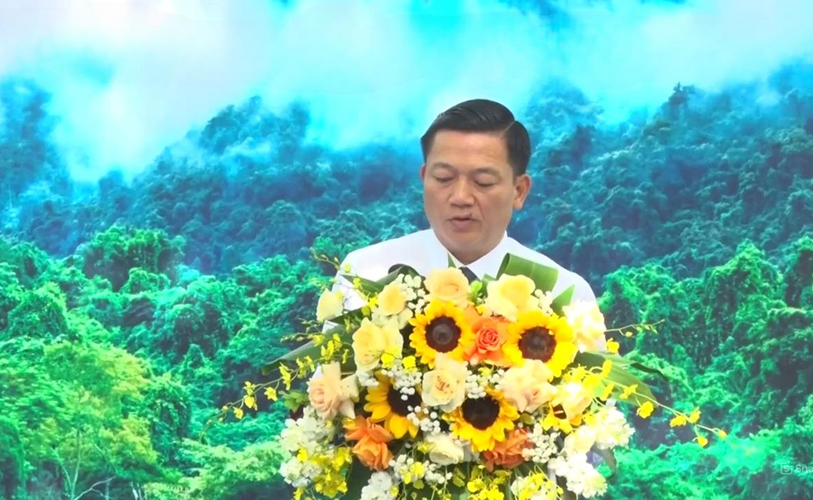
Vice Chairman of Ninh Binh People’s Committee Nguyen Cao Son affirmed that with its abundant and diverse natural resources, the province identifies environmental protection and biodiversity conservation as fundamental conditions for promoting key economic sectors
Looking ahead, the province plans to intensify the integration of biodiversity conservation objectives into socio-economic development strategies at all levels and fields. Priority will be given to investing in projects that protect natural landscapes, restore degraded ecosystems, and support local communities in conservation through sustainable livelihood models.
In particular, Ninh Binh will continue to leverage the unique roles of protected areas such as Cuc Phuong national park, Van Long nature reserve, and the Trang An scenic complex to safeguard rare flora and fauna, while serving as a bridge connecting science, education, tourism, and local communities.
Ninh Binh has achieved significant results. Forest cover is expected to reach 19.3% by 2025, with a balanced distribution across key ecological zones including Cuc Phuong national park, Trang An heritage site, the buffer zone of the Red River biosphere reserve, and Van Long wetlands. Community awareness of conservation has also markedly increased, with active participation from social organizations, businesses, and residents.
At the same time, the province has strengthened control over biodiversity-related legal violations such as illegal hunting and logging, while promoting the application of science and technology in conservation. Various tourism models linked to ecological services have been developed, creating distinctive products that contribute to sustainable economic growth aligned with conservation.
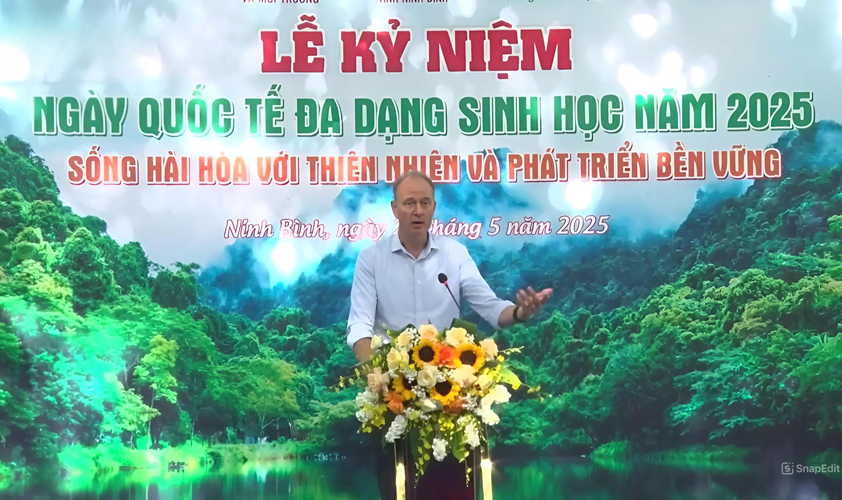
Mr. Patrick Haverman, Deputy Resident Representative of UNDP in Vietnam, also expressed concern over the fact that more than one-third of mammal species in the country are facing the risk of extinction.
Nevertheless, challenges remain. The populations of some rare species continue to decline, while environmental pollution from industrial clusters, craft villages, agricultural activities, and unsustainable consumption habits pose ongoing threats. This requires Ninh Binh to continuously innovate leadership approaches, increase investments, and tighten management to ensure sustainable development that closely links biodiversity conservation with economic growth.
Turning awareness into action: The role of society
At the celebration, Deputy Minister Nguyen Quoc Tri outlined strategic directions to enhance biodiversity conservation effectiveness in the coming period. First, mechanisms and policies must be refined to harmonize conservation with the rational exploitation of biological resources, while promoting green livelihoods, ecotourism, and environmental education. This approach not only protects the environment but also creates new economic opportunities for communities.
Second, the implementation of the National Biodiversity Strategy and Conservation Planning should be systematically organized, focusing on restoring degraded ecosystems and maintaining the integrity of biological zones. This will form a solid foundation for a green and sustainable economy, consistent with the country’s long-term development orientation.
Third, science, technology, and digital transformation should be accelerated in ecosystem monitoring and restoration. Specifically, establishing a national digital biodiversity database will support national parks, reserves, and rescue centers in applying technology to manage rare species, thereby improving efficiency and accuracy in modern conservation efforts.
Fourth, the Deputy Minister emphasized the importance of budget allocation and mobilizing diverse domestic and international financial resources for conservation. Expanding international partnerships to attract investment, share experience, and ensure equitable benefit-sharing from genetic resources is also essential.
Finally, he called for intensified communication, education, and community awareness-raising on nature and biodiversity conservation. Diversifying communication channels, integrating conservation education into school curricula, and promptly identifying, proposing, and honoring individuals, groups, and communities with practical and effective conservation initiatives will contribute significantly to overall success. All these solutions can only be effectively realized with strong engagement from the whole society—from management levels and organizations to every individual—working together for a green, peaceful, and prosperous future.
The 2025 International Biodiversity Day celebration not only honors nature but also serves as a profound reminder of the responsibility of each individual and organization. On the path to sustainable development, only when society fully recognizes the importance of biodiversity and acts consistently can we ensure a green, peaceful, and prosperous future for generations to come.
Minh Huyen


